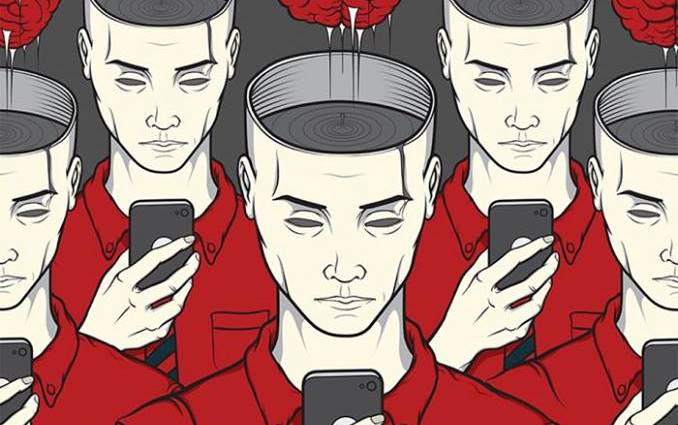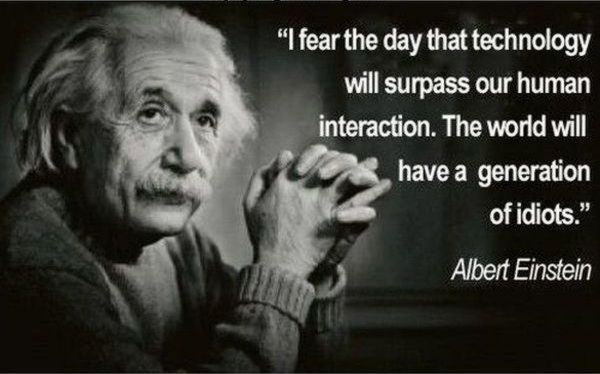
Fone Free Feb
Everywhere you go, everywhere you look, people seem to be glued into their phones.
It seems that we are surrounded by technology – the screens of our computers, the screens of our phones. There is no escape and, more and more, it’s scaring me just how much technology’s changed society and taken over our lives.
You go into the city by train, and everywhere you see people absorbed in their screens; heads down, not looking around, not looking at each other, not taking things in.
I am guilty of it, too, and it’s not something I am comfortable with – that twitch, the inability to concentrate or be fully present; the war within one’s self to ignore that itch… and, yes, the irony that this is being read on a screen.
I don’t like how I have changed. I don’t like the way the world has changed.
I constantly find myself growing depressed at the thought of where we are headed. What kind of world is it that we are living in?
What kind of world is it, when people going to the MCG are more excited by the fact that it has free wi-fi than they are about going to watch the cricket or footy?
What kind of world is it, when kids will not know what it is to play, to explore, to get messy and have proper conversations with one another?
Many people are starting to realise and grow aware of this issue, though – and so movements like Fone Free February and the National Day of Unplugging have been born.
Initiated in 2013, Fone Free Feb is a ‘time to stop, think and dream’ – encouraging people to put down or switch off their phones, and actually spend time with each other; reclaim the time for yourself and turn your attention to the world around you.
Fone Free Feb ambassador Andrew Denton puts it this way: ‘Every time we respond to the ping of our phones, we turn ourselves over to somebody else’s voice or thoughts. Do it all the time and we lose track of our authentic selves. The bit that makes us ‘us’.
‘I believe daydreaming is the most important creative state there is and that the only way to achieve this state is by actively seeking silence. The first, and most obvious way, to do this is by dealing with the Little Satan in your pocket – your phone.’
In her TED talk ‘Connected but alone’, psychologist Sherry Turkle says, ‘Those little devices in our pockets are so psychologically powerful that they don’t only change what we do, but they change who we are… I think we are setting ourselves up for trouble – trouble in how we relate to each other, but also trouble in how we also relate to ourselves.’
I think Fone Free Feb is a great concept, and one that we should all get on-board with in our everyday lives – not just in February.
For further evidence of this, check out the videos ‘Look Up’, ‘I Forgot My Phone’ and ‘Can We Auto-Correct Humanity?’
There is also a great short story, ‘The Day the Internet Died’ by Boris Glikman, which is well worth the read.
For further information on Fone Free Feb, head to their website at http://www.fonefreefeb.com/ or http://fonefreefeb.gofundraise.com.au/
You May Also Like

Hobbits in the Gully?
May 31, 2020
New era for Millers Homestead
November 16, 2021

4 Comments
Boris
Meg, I just found, by accident, that you mentioned my story on your site, so I wanted to thank you for that!
Boris
I agree what you say in this article too. As you know, I explore some of these issues in my story. I actually make a stand on this matter and refuse to get a phone which has a connection to the internet, and instead have a small Nokia phone which only allows you to make calls and send SMS. So that way I am free of the internet when I am in the outer real world.
Meg
Thanks Boris!
I ought to try that as well – though I’m not sure my willpower would be as strong as yours! – Meg
Boris
it’s very easy really Meg – just ditch your smartphone and get a Nokia!